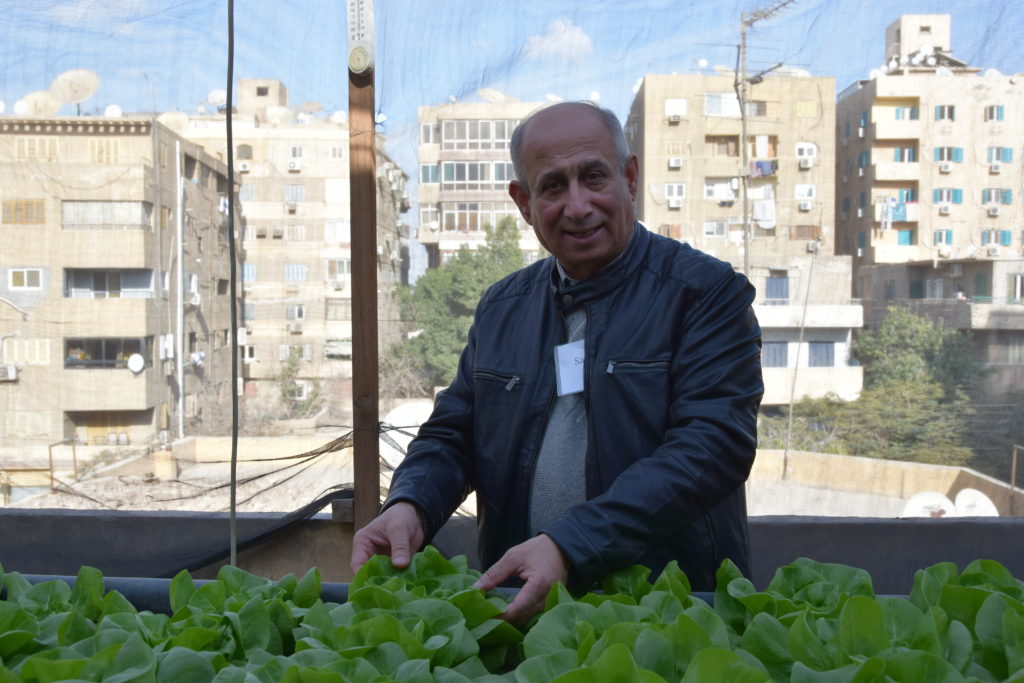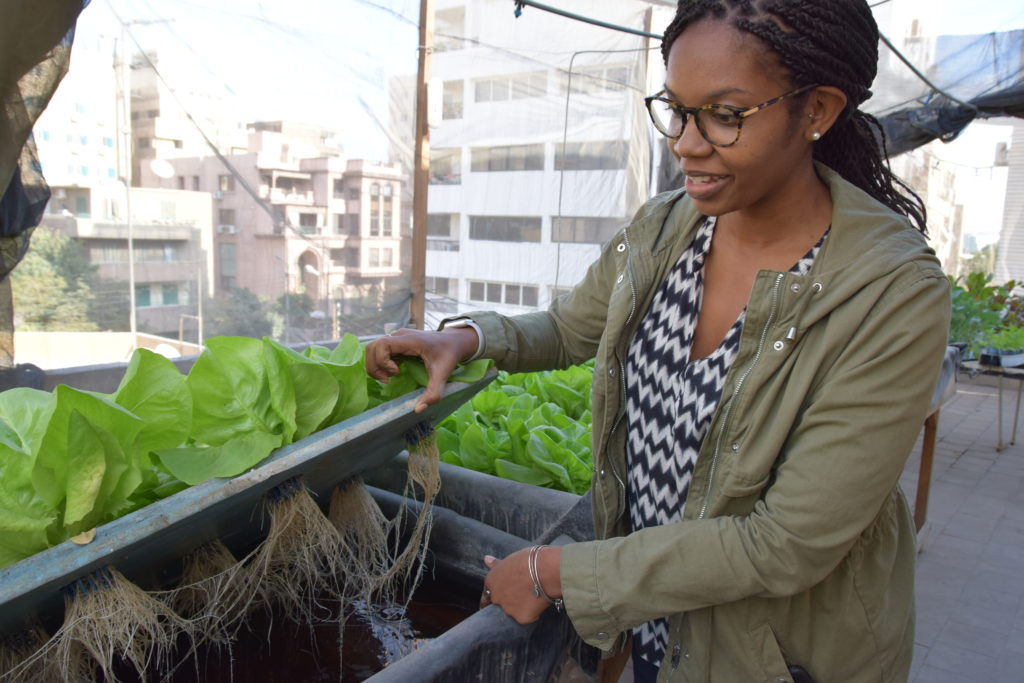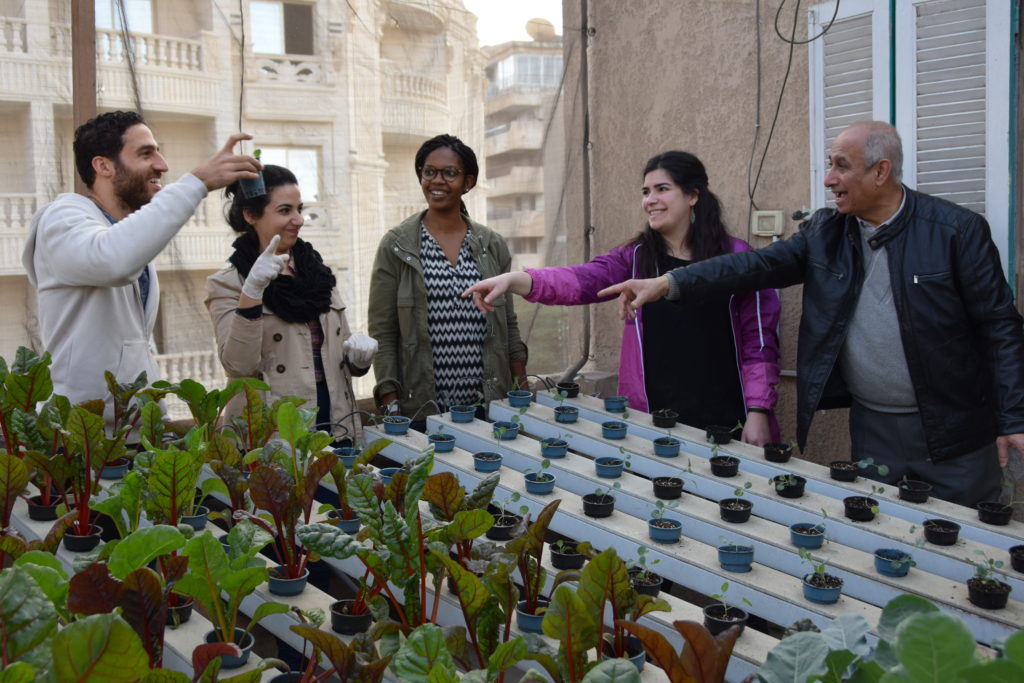As the benefits of urban green spaces become apparent, passionate activists across the Middle East & North Africa are changing their cities through urban agriculture, rooftop gardens, innovative waste management solutions, and community engagement.
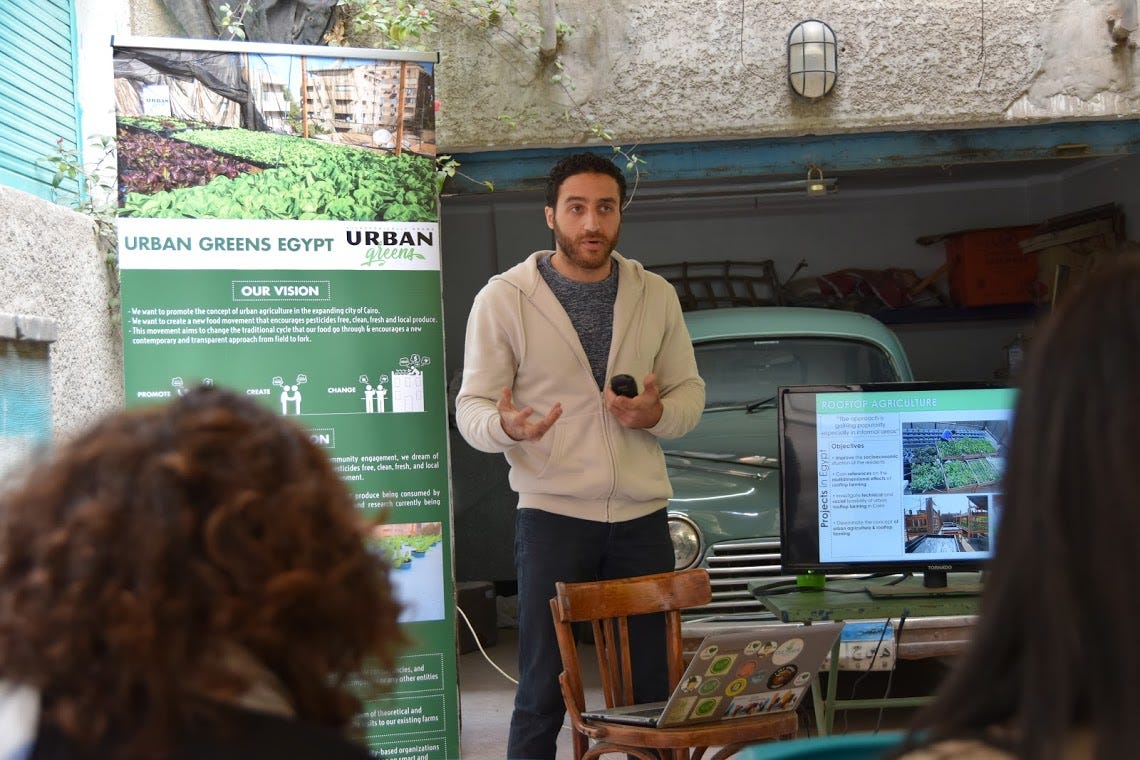
In January 2020, the U.S. Forest Service brought together a group of individuals from Egypt, Lebanon, Jordan, Tunisia, and the Palestinian Territories to learn about urban environmental initiatives in Cairo, Egypt, as a case, and to generate ideas and inspiration for how to expand and enhance urban programs in their home countries.
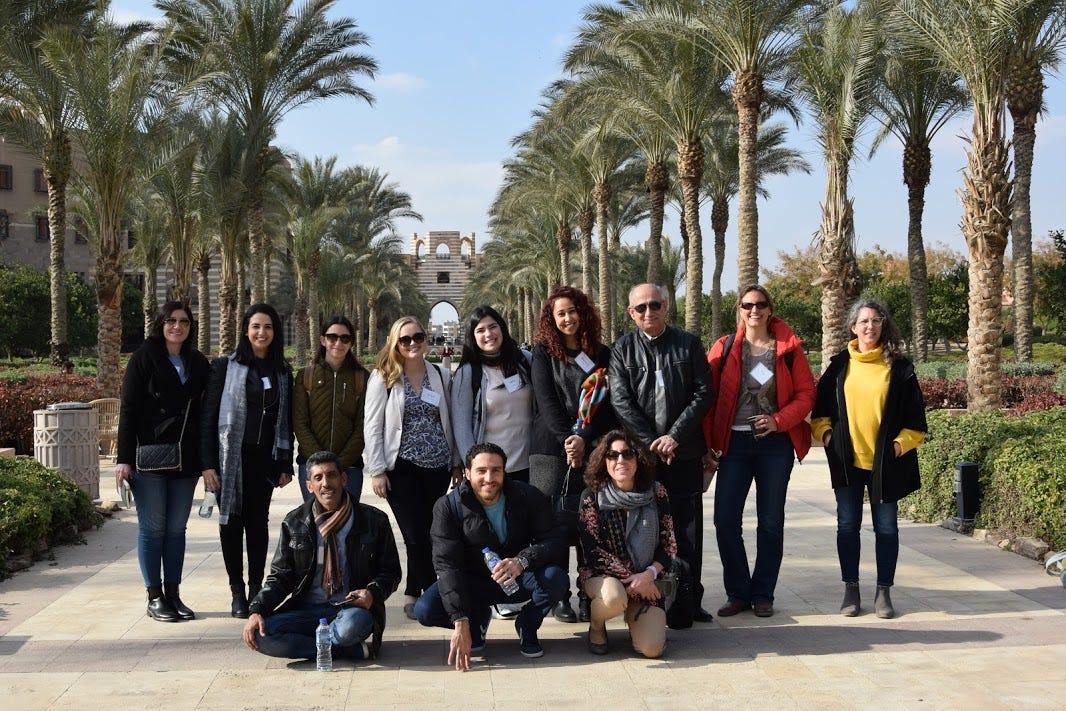
The Green Cities Study Tour included an intensive week of site visits and discussions with local NGOs, businesses, and community activists working to make Cairo a green city. With guidance from the U.S. Forest Service and local specialists, each participant returned home with a unique action plan to implement in their own cities.
Topics covered over the week-long study tour included multi-sectoral partnerships, urban revitalization, economic viability and sustainability, women’s empowerment, and youth engagement and education.
At the end of the week, participants established a regional network to continue the sharing of ideas and resources. All of them have plans to build momentum around urban greening in the Middle East and North Africa.

The Green Cities Study Tour was originally envisioned by a group of participants on the Forest Service’s Urban Forestry and Community Engagement Seminar which takes place annually in Chicago and New York City. The group included Tina and Julia from Egypt and Lebanon, respectively. After sharing about their programs and challenges, they realized how much they could learn and gain through a regional exchange on urban programs.
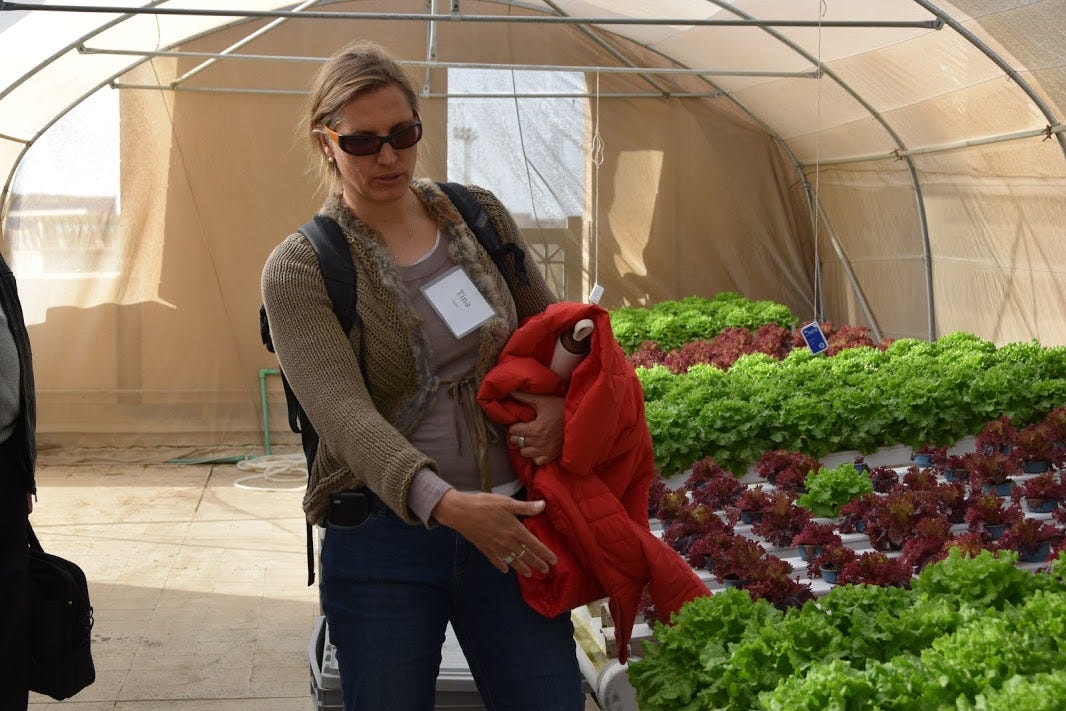
TINA
For me the Regional MENA Green Cities Study Tour was a dream come true.
When attending the International Urban Forestry Seminar in the US in June 2019, one of the things that struck me as a participant was that many of the initiatives we visited, including the creation and management of parks, community initiatives and research, were based on strong networks of institutions, organizations and community leaders. This experience made me realize how few functioning networks on urban green spaces and farming we had in Egypt and the Middle East.
It was fantastic to get to know all of these leaders and visionaries from Jordan, Lebanon, Tunisia and Palestine, and to receive their feedback on the initiatives we saw in Cairo. From the participants’ various backgrounds, we gathered great ideas on how we can expand our Cairo network, what activities the network might carry out, how we can communicate our ideas, and how we can reach out to engage more community members.
The US Forest Service International Programs Team is doing a wonderful job at bringing together individuals from around the planet who share the same vision.
Thanks to the USFS for making this happen — it was a fun, inspiring week in Egypt that made me look at my own country from new perspectives. And how great to see Julia, my seminar roommate, in Cairo!

JULIA
I remember the day the idea was born, we were in Prospect park, Brooklyn and we had some time to spend per region to share our concerns and how we can contribute with our different backgrounds to improve future interventions. While discussing the issues encountered in Egypt, Tunisia and Lebanon, some common obstacles came out, and we found out that each country deals with them with the resources available, in their own way. Tina particularly shared with us some success stories from Egypt, implemented by AUC and Urban Greens and we were so curious to learn the key to their success.
Taking part in the Urban seminar gave me the chance to meet some very influential people. Whether researchers or individuals working in their own neighborhoods, I had the chance to witness the real impact of even the tiniest intervention on the community, and its importance. People live in cities, and we should find a way to make the urban ecosystem more sustainable and in harmony with nature.
The study tour in Egypt was a special opportunity to look closely into the several options we can apply in Lebanon, based on concrete examples proving that these concepts are not a form westernization or illusions only found in developed countries, but an answer to basic needs found in every city. Learning the smallest details of the work and visiting the champions they work with gave us an idea of what to look for back in our communities, how and where to find them.
This network is only starting to grow, we all need each other’s support and encouragement to keep moving forward and sharing our expertise.
